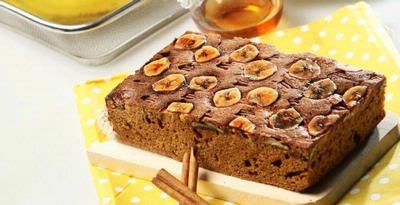
The content of alcohol in the cake will not disappear, but only reduced to about 50 percent of the pie.
When cooking we often find the problems. Various suggestions or tips from friends or family sometimes does not resolve the problem. You see, these suggestions are often just a myth. Well, prove first some myth.
1. Boiled green vegetables have no nutritional
Wrong. "If you boil green beans until it turns into a gray, nutrients and vitamins it will disappear, dissolve in water," said Nancy Berkoff, RD, chef , nutritionist, and a consultant from the Vegetarian Resource Group. Boiled green vegetables do not lose nutrients, especially essential minerals such as iron and potassium, because it is not soluble in water. "All the vegetables, cooked or raw, are a good source of fiber," he added. The best advice for cooking green vegetables is to steam in order to get a better texture. 2. The alcohol content will disappear after being oven
Wrong. Alcohol has a lower boiling point than water. That's why people think that alcohol is cooked or baked with other ingredients will evaporate and disappear. But it did not. "The process of cooking alcohol by boiling will leave about 50 percent alcohol content in food," said Robert Wolkem, professor of chemistry from the University of Pittsburgh and author ofWhat Einstein Told His Cook: Kitchen Science Explained . The percentage of alcohol content left in the food depends on the length of cooking and other factors such as the size of the pot.
Wrong. "If you boil green beans until it turns into a gray, nutrients and vitamins it will disappear, dissolve in water," said Nancy Berkoff, RD, chef , nutritionist, and a consultant from the Vegetarian Resource Group. Boiled green vegetables do not lose nutrients, especially essential minerals such as iron and potassium, because it is not soluble in water. "All the vegetables, cooked or raw, are a good source of fiber," he added. The best advice for cooking green vegetables is to steam in order to get a better texture. 2. The alcohol content will disappear after being oven
Wrong. Alcohol has a lower boiling point than water. That's why people think that alcohol is cooked or baked with other ingredients will evaporate and disappear. But it did not. "The process of cooking alcohol by boiling will leave about 50 percent alcohol content in food," said Robert Wolkem, professor of chemistry from the University of Pittsburgh and author ofWhat Einstein Told His Cook: Kitchen Science Explained . The percentage of alcohol content left in the food depends on the length of cooking and other factors such as the size of the pot.
3. Overcome with salty potato
Wrong. "The idea is interesting, but it really does not work well because the potato is not a good absorbent materials," said Wolke. To get rid of the salty taste, add a little vinegar or sugar can into the soup to give a slightly "compete" with other flavors.
4. Baking soda and baking powder has no shelf
Wrong. Baking soda can last until about four years, while the baking powder has a shelf life of about a year. Both types of additives containing yeast cake, but baking powder contain acids that allow it to quickly react to the cake when wet, and produces carbon dioxide which makes the cake rise. To determine whether baking powder can still be used or not, try to put a few tablespoons of baking powder in a glass of water. If bubbles form thenbaking powder can still be used. Baking soda
does not have acid content, and needs help from the sour dough to be developed. If baking soda is stored in a humid environment, then its value will be reduced.
Wrong. Baking soda can last until about four years, while the baking powder has a shelf life of about a year. Both types of additives containing yeast cake, but baking powder contain acids that allow it to quickly react to the cake when wet, and produces carbon dioxide which makes the cake rise. To determine whether baking powder can still be used or not, try to put a few tablespoons of baking powder in a glass of water. If bubbles form thenbaking powder can still be used. Baking soda
does not have acid content, and needs help from the sour dough to be developed. If baking soda is stored in a humid environment, then its value will be reduced.
5. Butter will melt if not stored in refrigerator
Wrong. Butter would not melt when it is not stored in the refrigerator, but it will make it less fresh. "In the manufacture of butter added salt in it, which will inhibit the growth of spoilage bacteria," said John Bruhn, specialist dairy foods from the University of California. Unsalted butter can be broken within a week, because it relies on natural salt to retard the growth of spoilage bacteria.
Wrong. Butter would not melt when it is not stored in the refrigerator, but it will make it less fresh. "In the manufacture of butter added salt in it, which will inhibit the growth of spoilage bacteria," said John Bruhn, specialist dairy foods from the University of California. Unsalted butter can be broken within a week, because it relies on natural salt to retard the growth of spoilage bacteria.



